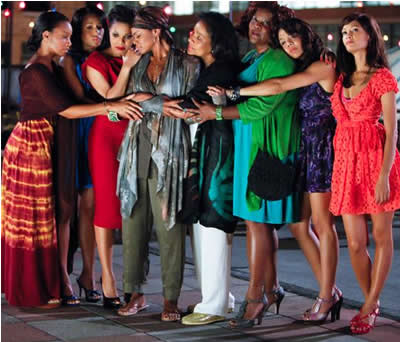The Arts, Social Media, and Cultural Activism for a Creative Civil Society
Tuesday, March 8th, 2011 by Upenyu Makoni-MuchemwaThe Arts, Social Media, and Cultural Activism for a Creative Civil Society
24 – 25 February 2011
HIVOS in partnership with the Norwegian Embassy conducted a workshop with artists, activists and journalists in order to encourage and promote the use of social media tools such as blogs, Twitter and Facebook amongst arts and media practitioners. With traditional media being state controlled there is little room for alternative voices to be heard by ordinary Zimbabweans.
The aims of the workshop were to examine the relationship between the arts, media communication and technology, as a catalyst for national dialogue and active civil society participation; to explore all possible ways in which new media could be used to disseminate information that supports the democratisation process in Zimbabwe, and finally to encourage dialogue between artists, arts organisations, media practitioners and civil society organisations. Among the presenters were Chris Kabwato, media activist Takura Zangazha, and protest poet Farai ‘Cde. Fatso’ Munro.
Chris Kabwato from Rhodes University gave a presentation on social and new media tools and their uses. He noted the problems of access, and that it was drawn along gender and economic lines, with greater access being afforded in urban areas. Mr. Kabwato also said that the new technology brought with cultural and political changes as in the cases of Tunisia and Egypt. “The Internet is also changing our business models, in the publishing industry it is changing our production, publication and distribution models.” He further noted. He described how these tools had become communications game changers and gave the example of Wikipedia, whose users generate the sites content. It had changed the site’s audience from being passive consumers of information to active producers of content. He went on to discuss Craig’s List, a free classified ads site that was changing the business model for newspapers and magazines. He stated that advertising had moved from print to the web, and it was no longer supporting content.
In his remarks media activist Takura Zhangazha pointed out that media arts and culture were about freedom of expression. In their attempts to retain power, governments both before and after independence limited this freedom through several pieces of legislation. Currently this included POSA, AIPPA, BSA, the Censorship and Entertainment Control Act. As such the placement of Freedom of Expression was in a highly politicised, repressed and difficult space. With the environment being so polarized between political parties, media and arts practitioners also found themselves self-censoring to survive. Mr. Zhangazha stated that a key problem in Zimbabwe today was the way in which the economic environment has affected the creativity of artists, and noted the influence of civil society organisations as well as political parties, which led artists to create to an agenda. He went on to describe the competing hegemonic agendas of political parties and how the media and artists were complicit in their formulation and promulgation.
In his presentation, titled the revolution via twitter – the role of new media in arts and activism, protest poet Cde Fatso began by defining the meaning of social and new media. He briefly reflected on the role played by social media platforms such as Facebook and Twitter in the revolutions in North Africa. Finally he showed how he had incorporated other less well know tools such as Reverbnation and CrowdFunder into his business model as an artist.










